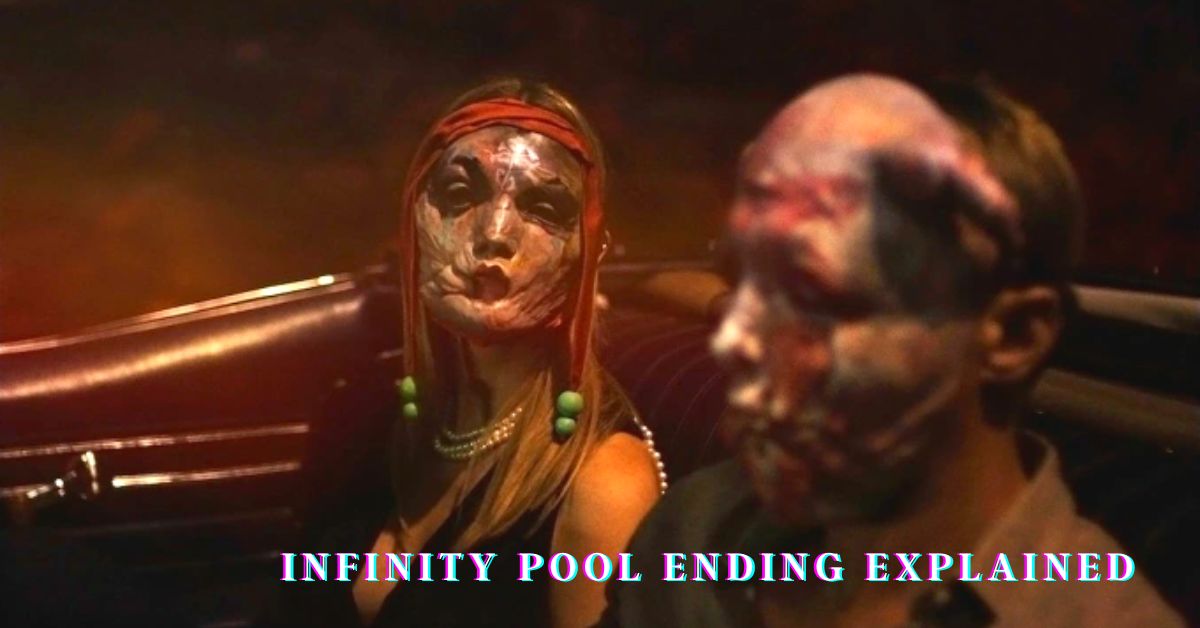Jake Barnes a war veteran who is injured and unable to have s*x, says to a friend who is having s*xual relations with his beloved: “You can’t get away from yourself by traveling from one location to another.” This quote is from Ernest Hemingway’s 1926 novel “The Sun Also Rises.” George Webber, the protagonist of Thomas Wolfe’s 1940 novel “You Can’t Go Home Again,” returns to his birthplace after having written a popular book about it. George’s former friends and relatives are disgusted by the novel’s contents and have distanced themselves from him.
In Brandon Cronenberg’s latest film, “Infinity Pool,” writer James Foster (Alexander Skarsgard) learns the hard way what it’s like to be stuck between two literary poles. The third of Cronenberg’s features to be directed, “Infinity Pool,” further establishes the director’s auteurist signature style, clichés, themes, and aesthetics. It follows in the footsteps of such groundbreaking satire-thrillers as “Sal,” by Pier Paolo Pasolini, “The Discreet Charm of the Bourgeoisie,” by Luis Bunuel and “The People Who Own the Dark,” by León Klimovsky.
Nonetheless, “Infinity Pool” succeeds most brilliantly in its depiction of the de-masculinization of Foster, a surrogate for the stereotypically male ideal. Like Hemingway, Wolfe and so many other astute artists, Cronenberg pops the inflated sense of self-importance that men have about themselves, and he seems to worry throughout the film if men will learn their lesson.
Hellish Amusement Park
The first part of “Infinity Pool” is a chronicle of the dull lives of the wealthy, primarily James Foster and his stunning wife Em (Cleopatra Coleman). They’re taking a break in the stunningly beautiful (fictitious) nation of Li Tolqa at an upscale resort. Since James hasn’t written a novel since his first aborted attempt some years ago, he and Em appear zombified by their vacation routine, which consists primarily of sleeping in, making plans for the day with only a modicum of enthusiasm, and wandering aimlessly.
When James (Justin Theroux) meets Gabi (Mia Goth), an actress visiting with her husband, Alban (a real estate mogul), James starts to perk up a little (Jalil Lespert). James and Em become close to the pair, and James is particularly attracted to Gabi since she claims to be a big fan of his book and because her specialty likewise lies in failure; more precisely, presenting failure believably while starring in commercials.
If you wanted to read about more tv shows ending then we have bought you a list of these amazing tv shows:
- Jack Ryan Season 3 Ending Explained: Is It A True Story?
- The Pale Blue Eye Ending Explained: Breaking Down the Ending of Netflixs Film!
- Emily in Paris Season 3 Ending Explained: Will Emily and Alfie break up?
The Tourism Industry
But the following morning, James and Em are arrested in a manner reminiscent of fascist regimes in the developing world and thrown in jail. After James and his wife are separated, he is questioned by Detective Thresh (Thomas Kretschmann), and it is at this point that Cronenberg reveals the film’s sci-fi/body horror twist.
Since Li Tolqa is a strongly religious and traditional society, its law requires the perpetrator of any murder, including manslaughter, to be put to death by the victim’s family. A technological alternative has been invented by the government in order to protect the tourism industry: the criminal will be “doubled,” or cloned so that the double may be publicly executed and the original may return to the resort.
Not a rule But a Good One
The magnificently diabolical “doubling” technology in “Infinity Pool” serves as a potent metaphor for the apathy of the super-wealthy toward morals and ethics. James, Gabi, and the rest of the “zombies” are able to commit robberies, acts of violent acts of assault and acts of harassment without fear of retribution; in fact, the execution of their doubles serves more as a source of entertainment than a sobering deterrent.
Despite being referred to as the “walking dead,” James and his companions are more like the worst Americans in the “Hostel” films, who got to experience torture from both sides. The group’s behavior is considerably more reminiscent of the hedonistic gangs in “Near Dark” and “The Lost Boys,” suggesting that they are increasingly close to the vampires they worship.
Have you watched Infinity Pool? Did you like it? We have provided you with details relating to Infinity Pool Ending Explained. If you want to read any other details relating to it you can tell us in our comment section. You can also join our Twitter account for more updates.
